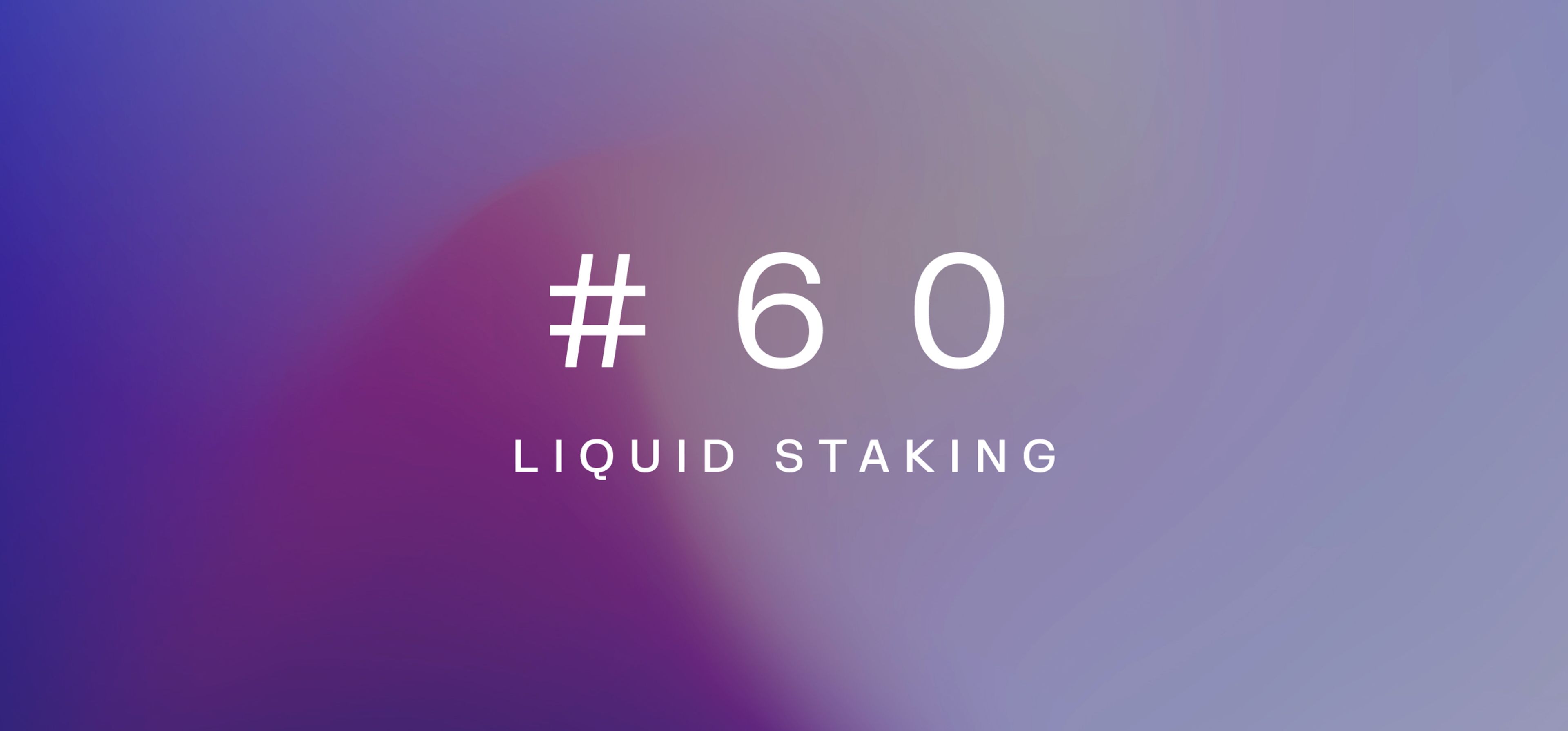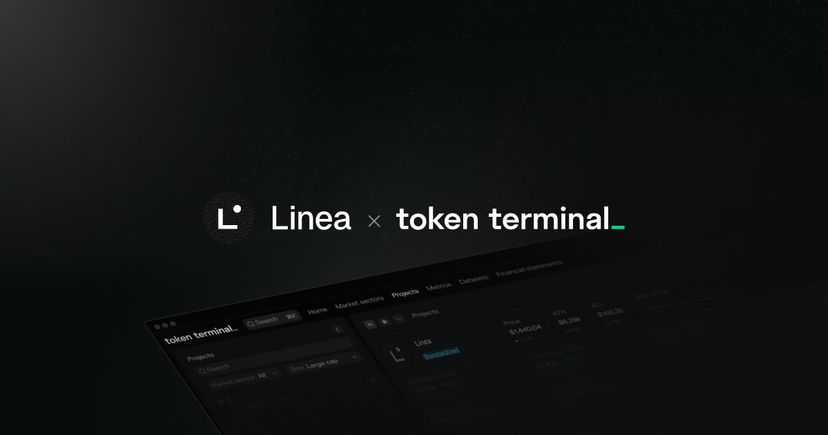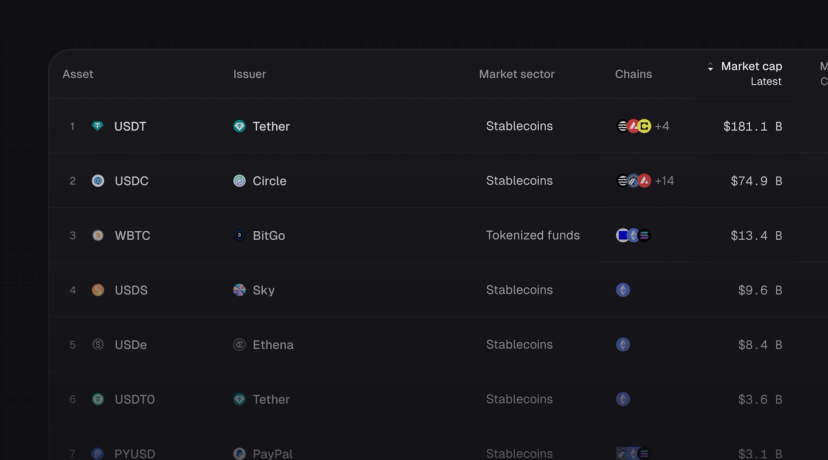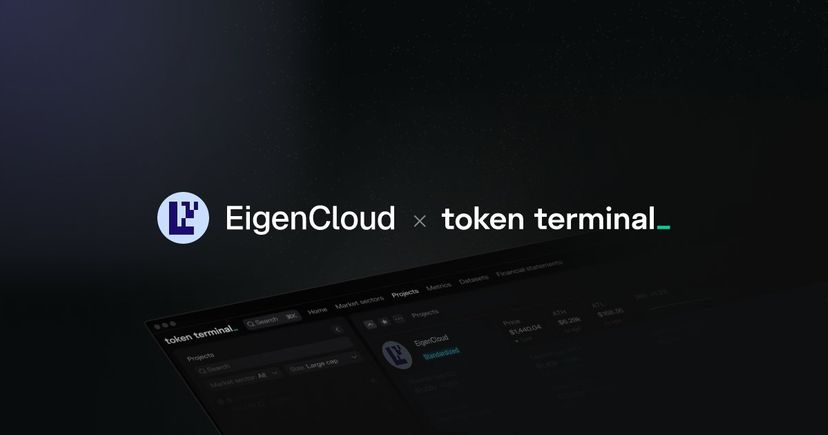Newsletter
Liquid staking – Weekly fundamentals #60

A walkthrough of the most interesting charts and trends in crypto, with a focus on key business drivers and protocol fundamentals.
This week’s newsletter focuses on the liquid staking market sector, which also has a designated dashboard on Token Terminal. Let’s dig in!
Liquid staking projects allow users to stake their assets and maintain liquidity via a derivative liquidity token (liquid staking derivative, LSD) that represents the underlying asset.
Overview
Below is visualized the daily assets staked for all projects in the liquid staking market sector over the past year.
Key takeaways
Scope of analysis.
- Our analysis captures the vast majority of the liquid staking projects on Ethereum, representing ~90% of the total amount of ETH staked through LSD products. The projects included in this article, listed in the order of market dominance, are: Lido (stETH), Coinbase (cbETH), Rocket Pool (rETH), Frax (frxETH), StakeWise (sETH2), Ankr (ankrETH), and ether.fi. Coinbase's cbETH is the sole centralized exchange LSD in the dataset.
- For liquid staking projects that have deployments on multiple chains, we're currently including only Ethereum data. This is relevant for projects like Lido and Ankr, which are both deployed across several chains. However, for both of them, Ethereum-based staking represents the vast majority of their respective assets staked.
General trends.
- Ethereum's recent Shapella upgrade de-risked ETH (staking) by allowing for withdrawals. The liquid staking market sector is, in addition to Blockchains (L2), among the fastest growing market sectors on Token Terminal. The market sector was growing fast already before the successfully executed Shapella upgrade (April 12th), which arguably reduced the risks associated with ETH as an investment, and ETH as a yield-earning asset.
- As a result, it is expected for the ETH staking ratio (assets staked / circulating market cap) to grow and reach parity with other PoS chains. Currently, the staking ratio for ETH sits at ~15%, which is relatively low compared to other PoS chains. For example, Solana and Avalanche currently boast staking ratios of over 60%. Given the higher market cap of ETH, ~$235B at the time of writing, we could see multibillion dollar growth in assets staked over the coming quarters.
Momentum
Below are visualized some of the key metrics based on absolute numbers and growth rates for the liquid staking market sector.
Key takeaways
Market leader.
- Lido has established itself as the current market leader within the liquid staking market sector. Despite its already large size, Lido continues to grow at a faster rate than its closest competitor, Coinbase, further solidifying its dominant position in the market.
ether.fi’s growth.
- ether.fi has experienced a significant growth in TVL, with 30d growth surpassing 400%. ether.fi launched its EarlyAdopterPool contract in February 2023, and even without staking functionality, it has managed to increase its total value locked (TVL) to an impressive $42.3 million.
- To gain a comprehensive understanding of the factors driving ether.fi's growth, we recommend tuning in to our 15-minute fundamentals episode, featuring a discussion with ether.fi's Founder & CEO, Mike Silagadze.
Key takeaways
Growth.
- Frax Ether has emerged as the fastest-growing player in the liquid staking market sector, primarily attributable to the high APY yields provided by its LSD product. The increased yield stems from additional returns generated through Curve and Convex liquidity mining rewards.
- ether.fi's rapid growth in daily active users (DAUs) is likely driven by reward farming (as the product is not live yet). A notable development is ether.fi's 30d increase in DAUs and its current second-place position in overall active users.
- It is important to acknowledge that withdrawals are currently not incorporated into the DAU metric.
Market dynamics.
- With the successful implementation of the Shapella upgrade, the liquid staking market sector is poised for accelerated growth and heightened competition. As a result, we might see liquid staking projects implement lower take rates, which means that they could be paying out a greater share of the rewards to stakers in the future.
Key takeaways
Capital efficiency.
- Projects with the same amount of assets staked may still generate a different amount in fees. In general, fee generation correlates with the amount of assets staked. But some projects may capture more MEV rewards than others, and thus generate more in fees. If the project's nodes have poor uptime and get slashed, this affects fee generation in a negative way.
- Lido maintains its market-leading position as the top fee generator. Lido continues to maintain its position as the market leader and top fee generator in the liquid staking market sector, although we currently do not track fees for all projects.
Different take rates.
A few examples of take rates for the leading liquid staking projects:
- Lido: 10% fee on generated rewards, split 50/50 between node operators and the DAO.
- Coinbase: 25% fee on generated rewards.
- Frax Ether: 10% fee on generated rewards.
- Rocket Pool: 14% fee on generated rewards charged by node operators, with no protocol revenue capture.
- StakeWise: 10% fee on generated rewards.
New listings on Token Terminal
Azuro, ether.fi, Swarm, and DFX are now live on Token Terminal!
Video of the week
In this episode of 15-minute fundamentals, we dive into the current state of ether.fi with Founder & CEO, Mike Silagadze.
Timestamps:
00:00 Introduction
02:08 What problem does ether.fi solve?
04:14 Overview of ether.fi’s product
07:28 Technical breakdown of staking & the ether.fi protocol
11:50 Ether.fi’s current users and target audience
13:23 Economic and business model
15:03 Current state of the staking market (opportunities and risks)
17:58 Growth drivers and challenges
19:22 The team building ether.fi
20:01 What’s next for ether.fi?
Tweet of the week
Follow us on Twitter for daily updates
$RPL Assets staked and token price are at an all time high.
— Emperor Osmo 🐂 🎯 (@Flowslikeosmo) April 19, 2023
The Atlas upgrade should drive demand for the $RPL token and increase its total assets staked.
This means that the barrier to entry for $ETH staking will be lowered, paving the way for more growth. pic.twitter.com/AxnwAX0XTu
Product tip of the week
Tips for getting the most out of Token Terminal
You can easily toggle between different blockchain ecosystems on data tables.
The authors of this content, or members, affiliates, or stakeholders of Token Terminal may be participating or are invested in protocols or tokens mentioned herein. The foregoing statement acts as a disclosure of potential conflicts of interest and is not a recommendation to purchase or invest in any token or participate in any protocol. Token Terminal does not recommend any particular course of action in relation to any token or protocol. The content herein is meant purely for educational and informational purposes only, and should not be relied upon as financial, investment, legal, tax or any other professional or other advice. None of the content and information herein is presented to induce or to attempt to induce any reader or other person to buy, sell or hold any token or participate in any protocol or enter into, or offer to enter into, any agreement for or with a view to buying or selling any token or participating in any protocol. Statements made herein (including statements of opinion, if any) are wholly generic and not tailored to take into account the personal needs and unique circumstances of any reader or any other person. Readers are strongly urged to exercise caution and have regard to their own personal needs and circumstances before making any decision to buy or sell any token or participate in any protocol. Observations and views expressed herein may be changed by Token Terminal at any time without notice. Token Terminal accepts no liability whatsoever for any losses or liabilities arising from the use of or reliance on any of this content.
Stay in the loop
Join our mailing list to get the latest insights!
Continue reading
- Customer stories: Token Terminal’s Data Partnership with Linea

Customer stories: Token Terminal’s Data Partnership with Linea
Through its partnership with Token Terminal, Linea turns transparency into a competitive advantage and continues to build trust with its growing community.
- Introducing Tokenized Assets

Introducing Tokenized Assets
Token Terminal is expanding its standardized onchain analytics to cover the rapidly growing category of tokenized real-world assets (RWAs) – starting with stablecoins, tokenized funds, and tokenized stocks.
- Customer stories: Token Terminal’s Data Partnership with EigenCloud

Customer stories: Token Terminal’s Data Partnership with EigenCloud
Through its partnership with Token Terminal, EigenCloud turns transparency into a competitive advantage and continues to build trust with its growing community.